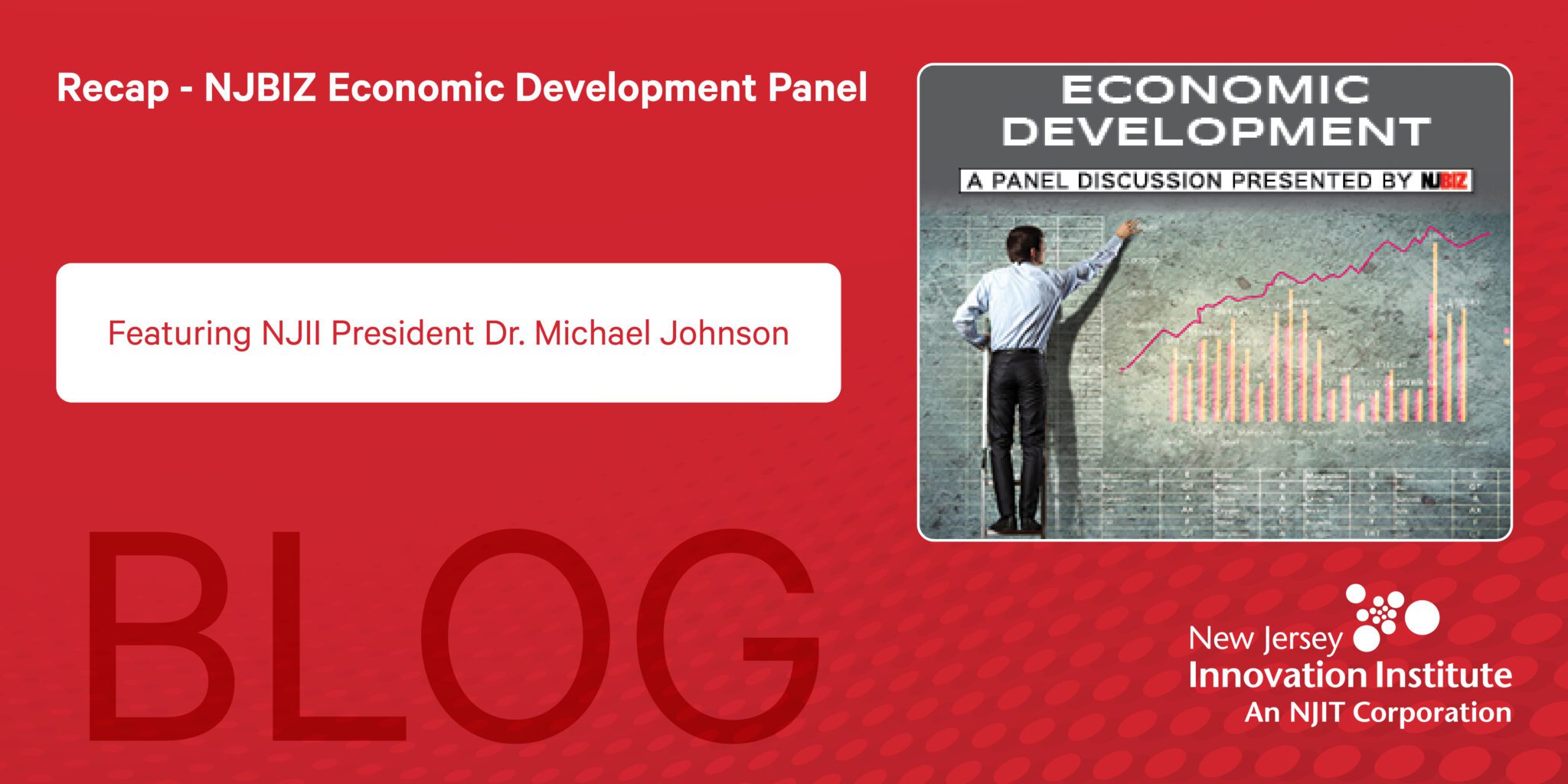On August 20th, NJBIZ Magazine hosted a virtual webinar on the topic of economic development within New Jersey. There were three panelists representing different areas of New Jersey’s workforce: Dr. Christopher M. Reber, President of Hudson County Community College, Kate Gibbs, Deputy Director of the International Union of Operating Engineers (IUOE) Local 825, and Dr. Michael Johnson, President of the New Jersey Innovation Institute. The panelists discussed the intersection between education, unions, and workforce development, how sustainability affects workforce development, geographic trends, AI, and more. The webinar was hosted by NJBIZ Chief Editor Jeffrey Kanige.
Kate Gibbs delivered insights into how manufacturing and infrastructure impact economic development and transportation. She made it clear that furthering infrastructure such as public transport, distribution of water, and energy support is critical to New Jersey’s economy at a high level. She also discussed project development and how it affects the union sectors in terms of contractors and manufacturers. Specifically, the Turnpike Expansion which she sees as crucial, and a way “to move goods and services properly in the most densely populated area in the country.”
Dr. Reber of Hudson County Community College mentioned his institution’s diverse student body, most of whom are over 20 years old, and how they are provided with the necessary micro credentials to develop their skills and land quality positions within New Jersey’s workforce. He also praised his students for their high work ethic, mentioning that many of them work full-time while attending college. Gibbs and Reber both mentioned the state and private partnerships their organizations have initiated to further develop their personal.
Dr. Johnson made it a point to mention the COMET Project, one of NJII’s flagship programs within its Defense Division. COMET is a joint initiative of NJII’s Defense Division, NJIT resources and the United States Department of Defense, integrating top minds and resources from the public and private sectors to solve and innovate advanced manufacturing processes. COMET also features a one-of-a-kind summer internship program, onboarding up to 30 college students seeking degrees in STEM, engineering, and other disciplines. This 10-week internship is meant to help students prepare for the workforce through extensive training and collaboration. “We’re training students how to apply engineering and STEM degrees in a real-world situation” said Michael when discussing the benefits of the program. Other pressing topics included employee retention, supply chains, inflation, and more. The webinar ended with a Q&A in which the panelists answered several questions from the audience. You can register and view the webinar by signing up here.
